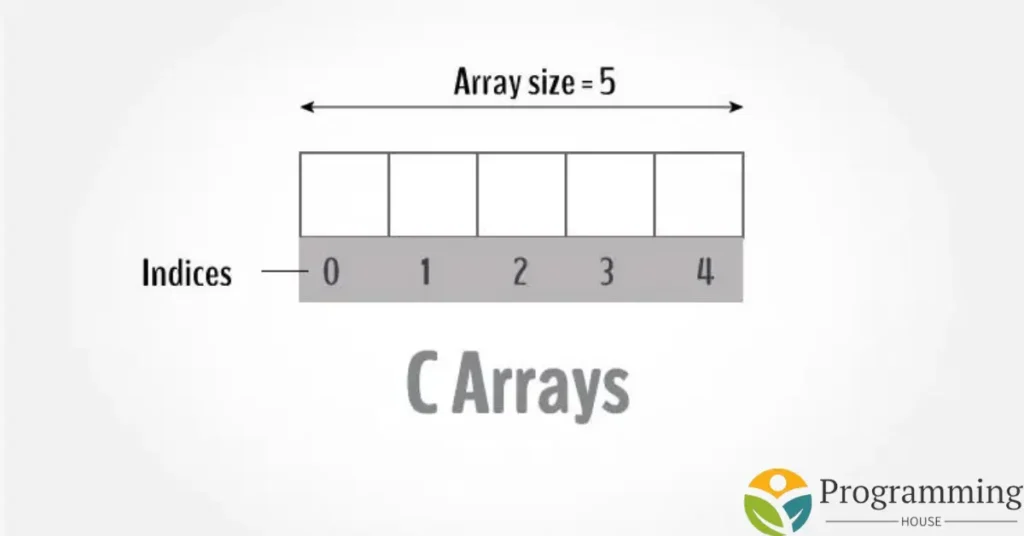Understanding Input and Output Values in Arrays in C
Arrays are individual of ultimate fundamental dossier forms in C set up. They admit you to store diversified principles of the unchanging dossier type in a distinct changeable, making it smooth to accomplish and maneuver big amounts of dossier. In this item, we’ll survey by means of what to handle Input and Output Values in Arrays in C.
1. Introduction to Arrays in C

An array is a group of items, each labeled by an index or a key. In C, arrays are nothing-ordered, message the first piece has an index of 0. Arrays maybe of some dossier type, containing int, drift, burn, and more.
Here’s a natural proclamation of an number array in C:
int numbers[5];This line of law declares an array chosen numbers that can hold five integers.
2. Input Values into an Array
To recommendation principles into an array, you usually use a loop. The most coarse loop for this purpose is the for loop, that admits you to repeat through the array and designate principles for each ingredient.
Here’s an model:
#involve
int main() {
int numbers[5];
// Input principles into the array
printf("Enter 5 integers:\n");
for(int i = 0; i < 5; i++) {
scanf("%d", &numbers[i]);
}
return 0;
}In this model:
int numbers[5];declares an array accompanying five items.- The
forloop iterates from 0 to 4, admitting the consumer to recommendation principles utilizingscanf. scanf("%d", &numbers[i]);reads an number recommendation from the consumer and stores it in the matching array detail.
3. Output Values from an Array
Once you have recommendation principles into an array, you can surely amount ruling class utilizing another loop. Here’s by means of what you can print the principles stocked in the array:
#involve
int main() {
int numbers[5];
// Input principles into the array
printf("Enter 5 integers:\n");
for(int i = 0; i < 5; i++) {
scanf("%d", &numbers[i]);
}
// Output the principles
printf("You filed:\n");
for(int i = 0; i < 5; i++) {
printf("%d ", numbers[i]);
}
return 0;
}In this rule:
- The
forloop afterwards the recommendation division iterates through the array and prints each piece utilizingprintf. printf("%d ", numbers[i]);outputs each number in the array, divided by a scope.
4. Example: Summing Array Elements
To further depict by virtue of what to help recommendation and profit in arrays, let’s examine an model place we total the parts of an array.
#involve
int main() {
int numbers[5];
int total = 0;
// Input principles into the array
printf("Enter 5 integers:\n");
for(int i = 0; i < 5; i++) {
scanf("%d", &numbers[i]);
}
// Calculate the total of the items
for(int i = 0; i < 5; i++) {
total += numbers[i];
}
// Output the total
printf("The total of the details is: %d\n", total);
return 0;
}This program calculates the total of the integers stocked in the array:
- The first
forloop reads integers from the consumer. - The second
forloop adjoins each component to thetotalchanging. - The result is impressed utilizing
printf.
5. Conclusion
Arrays are effective forms for directing diversified dossier parts in C. By understanding by means of what to Input and Output Values in Arrays in C you can capably handle a roomy range of compute tasks. Whether you’rework accompanying plain lists or more intricate dossier makeups, learning array movements is essential for persuasive C register.
In this item, we’ve dotted the fundamentals of transfer data from one computer system to another principles into an array, producing publications with computer software those principles, and even operating elementary movements like calculate the fundamentals. With these essentials, you’re fully equipped to tackle more progressive array manipulations in your C register journey.



